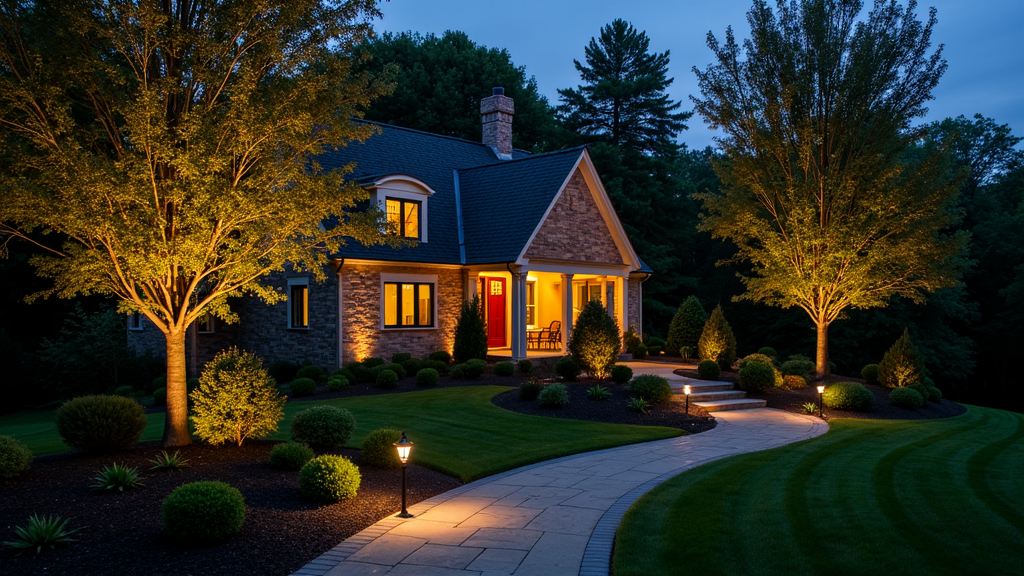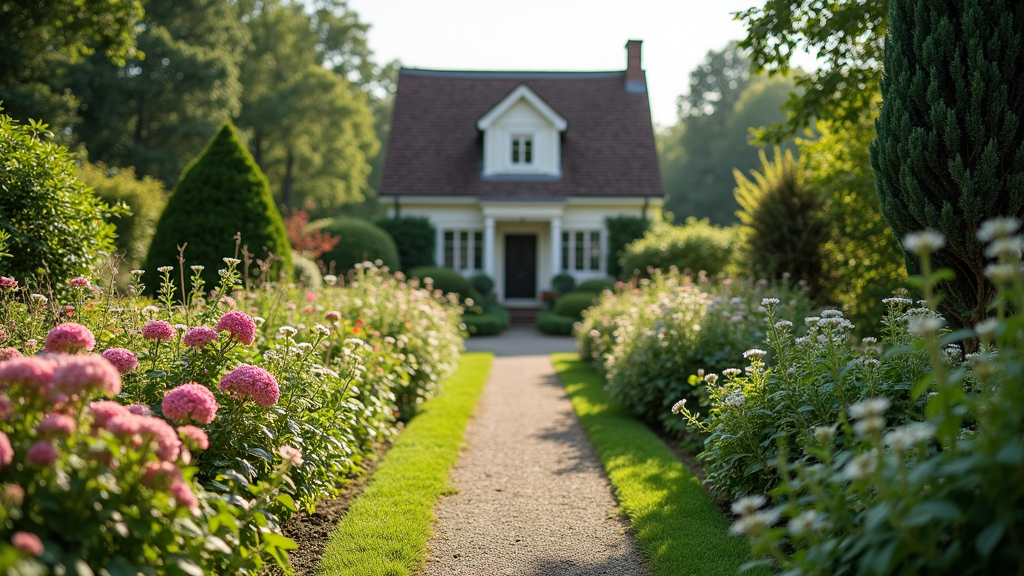Introduction
In an age where environmental concerns are at the forefront of our collective consciousness, creating a sustainable landscape has become more than just a trend—it's a necessity. For homeowners and businesses alike in Greensboro, NC, the approach to landscaping is shifting towards eco-friendly practices that conserve resources, enhance biodiversity, and promote local ecosystems. With its unique climate and rich diversity of plant life, Greensboro offers a fantastic opportunity for individuals to engage in sustainable landscaping practices that not only benefit the environment but also enhance the aesthetic appeal of their properties.
Creating a Sustainable Landscape in Greensboro, NC
When we talk about sustainable landscaping, we're referring to a method that works in harmony with nature rather than against it. This means utilizing native plants, implementing responsible irrigation techniques, and fostering habitats for local wildlife. In this section, we'll delve into what makes up a sustainable landscape specifically tailored for Greensboro.
Understanding the Climate of Greensboro
Greensboro experiences a humid subtropical climate characterized by hot summers and mild winters. The average rainfall is around 45 inches annually, which influences the types of plants that can thrive here. Understanding these climatic conditions is key to making informed decisions about your landscape choices.
Why Choose Native Plants?
One of the cornerstones of sustainable landscaping is using native plants. Native plants are those that have evolved in a specific region over thousands of years. They are adapted to local climate conditions, require less water, and provide essential habitat for local wildlife.
Benefits of Native Plants
- Low Maintenance: Native species typically require less care than non-native varieties. Water Conservation: These plants are more drought-resistant. Habitat Creation: They attract pollinators such as bees and butterflies.
Choosing the Right Native Plants for Your Landscape
Some popular native plants suitable for Greensboro include:
- Eastern Redbud: A stunning small tree that blooms in early spring. Purple Coneflower: Known for attracting butterflies. Black-eyed Susan: A vibrant flower that thrives in sunny spots.
Soil Health and Sustainability
Healthy soil is vital for any successful landscape project. It provides nutrients to plants while aiding in water retention. Implementing organic practices like composting can improve soil health significantly.
https://backyardbliss7.gumroad.com/p/planning-an-outdoor-kitchen-essential-landscaping-considerations-for-greensborosceComposting Basics
Choose a composting method (bin or pile). Gather green materials (kitchen scraps) and brown materials (dried leaves). Maintain moisture levels and turn your compost regularly.Water Management Techniques
Water conservation is crucial when creating a sustainable landscape. Here are some effective methods:

Rain Gardens
A rain garden collects rainwater runoff from impervious surfaces like roofs or driveways, allowing it to infiltrate into the ground rather than flow into storm drains.
Drip Irrigation Systems
These systems deliver water directly to plant roots without wasting much on evaporation or runoff.
The Role of Hardscaping in Sustainability
Hardscaping refers to non-plant elements like pathways, patios, or walls within your landscape design. When done sustainably using permeable materials, hardscaping can help manage water runoff effectively.
Creating Habitats for Wildlife
Sustainable landscapes should serve as habitats for various forms of wildlife:
- Install birdhouses or bat boxes. Create brush piles from yard debris. Plant diverse flora to attract various species.
Implementing Organic Practices in Landscaping Greensboro
Using organic fertilizers instead of chemical ones boosts soil health while reducing pollution runoff into nearby waterways.
Popular Organic Practices Include:
Crop rotation. Companion planting. Natural pest control measures (like introducing beneficial insects).The Importance of Mulching
Mulching helps retain moisture in the soil while suppressing weeds—a win-win situation! Organic mulches such as pine straw or wood chips break down over time and contribute nutrients back into the soil.
The Economic Benefits of Sustainable Landscaping
Investing in sustainable landscaping may seem daunting initially; however, it often leads to long-term savings through reduced maintenance costs and lower water bills.
Engaging with Local Landscaping Experts
Finding professionals who specialize in eco-friendly practices can make your journey much smoother. Look for local landscaping companies that prioritize sustainability—many offer services tailored specifically to meet these goals!
DIY vs Professional Help: What’s Best?
While many homeowners find joy in DIY projects involving greensboro landscaping ideas from online blogs or forums—sometimes hiring experts ensures better results without unnecessary hassle!
FAQs About Creating a Sustainable Landscape
What are some easy ways to start sustainable landscaping?
Start small by incorporating native plants and practicing efficient watering methods.
How do I choose suitable native plants?
Research local nurseries or extension services that specialize in native flora for recommendations based on your specific location within Greensboro!
Is mulch necessary if I use native plants?
Yes! Mulch helps conserve moisture around roots even when using drought-tolerant species!
Can I create habitats without significant changes?
Absolutely! Small additions like bird feeders or insect hotels make substantial differences!
How often should I water my sustainable garden?
Watering needs depend on weather conditions; check moisture levels regularly!

li21/ol3/hr2hr2/##
Conclusion
Creating a sustainable landscape in Greensboro, NC is an enriching endeavor that combines aesthetics with environmental responsibility. By embracing native flora, practicing efficient watering techniques, and engaging with professional landscapers who share your eco-friendly vision—you’ll not only beautify your property but also contribute positively towards preserving our beloved planet! Embracing sustainability isn’t just about today—it’s about ensuring future generations enjoy the same rich landscapes we cherish now! Happy gardening!